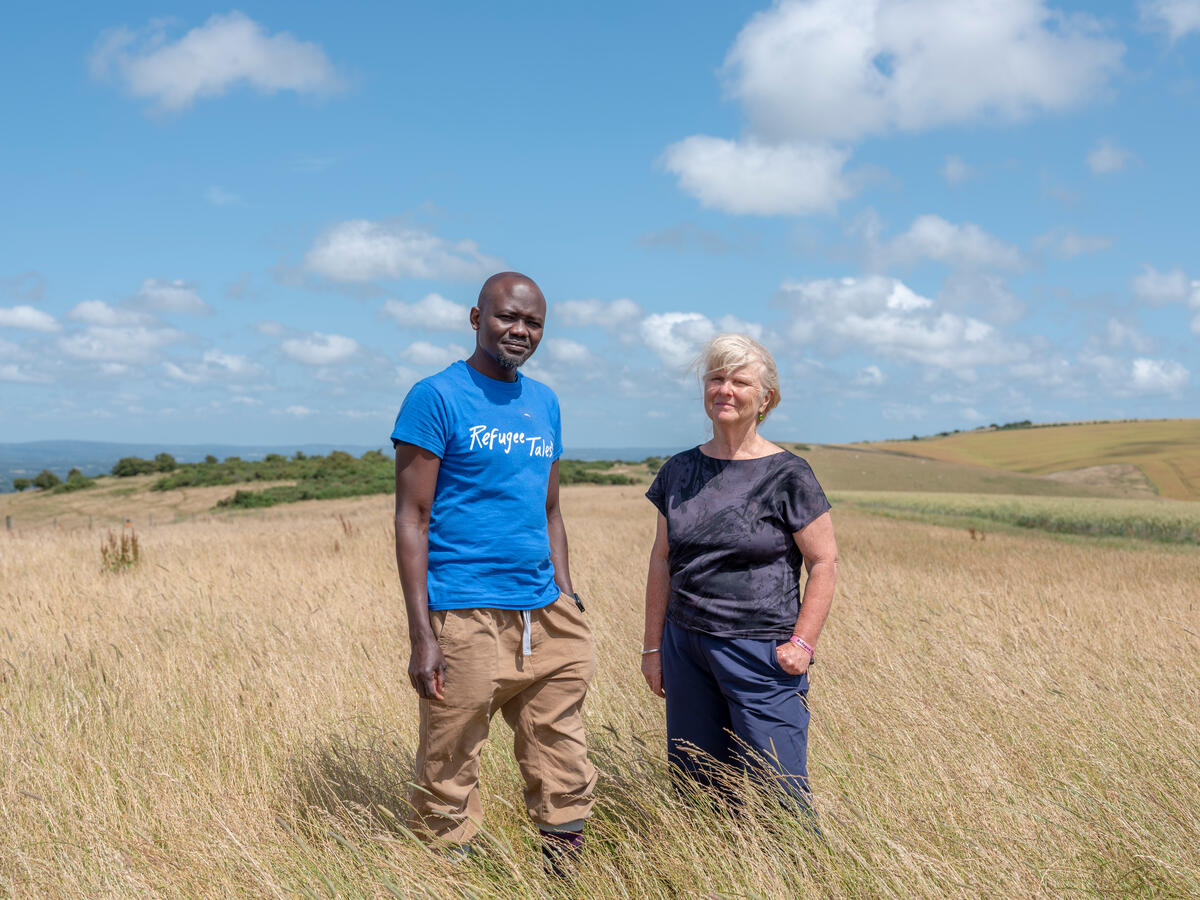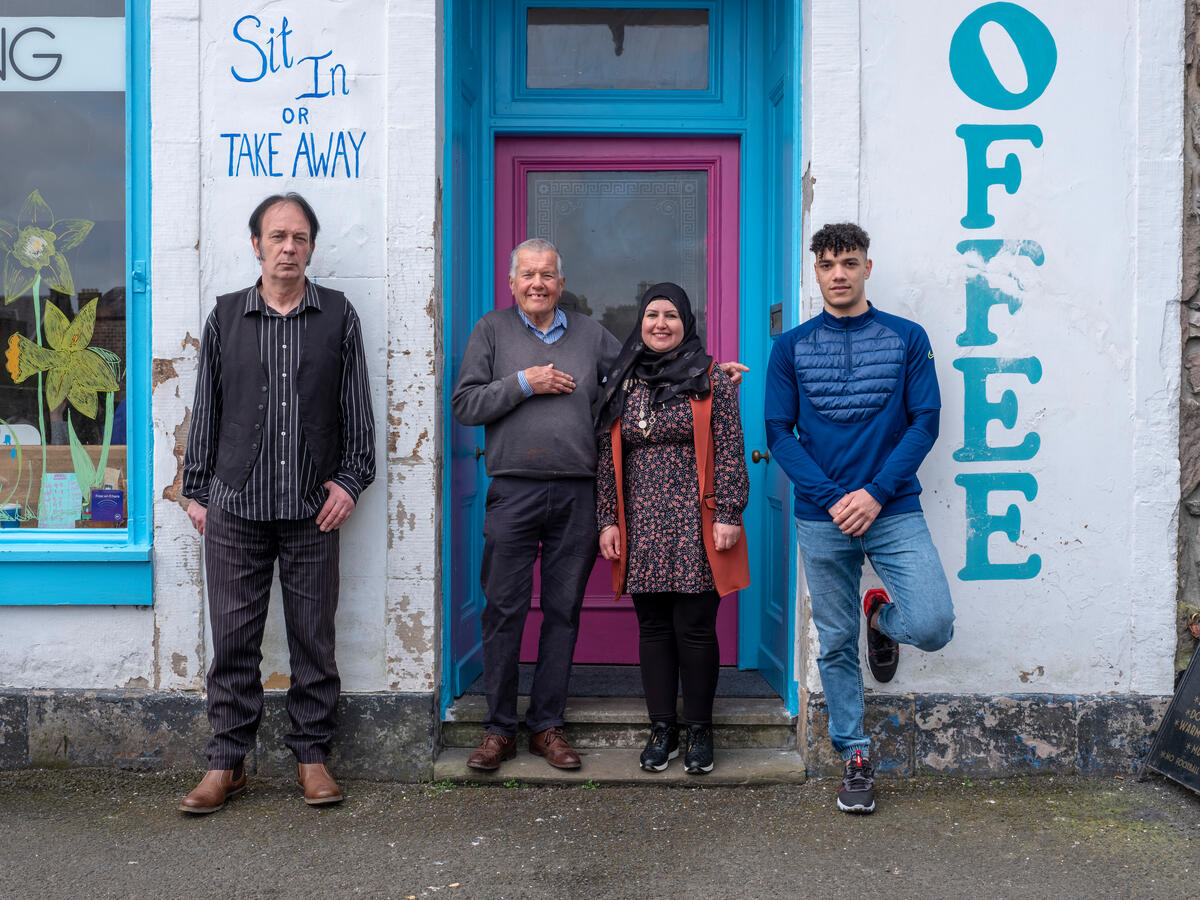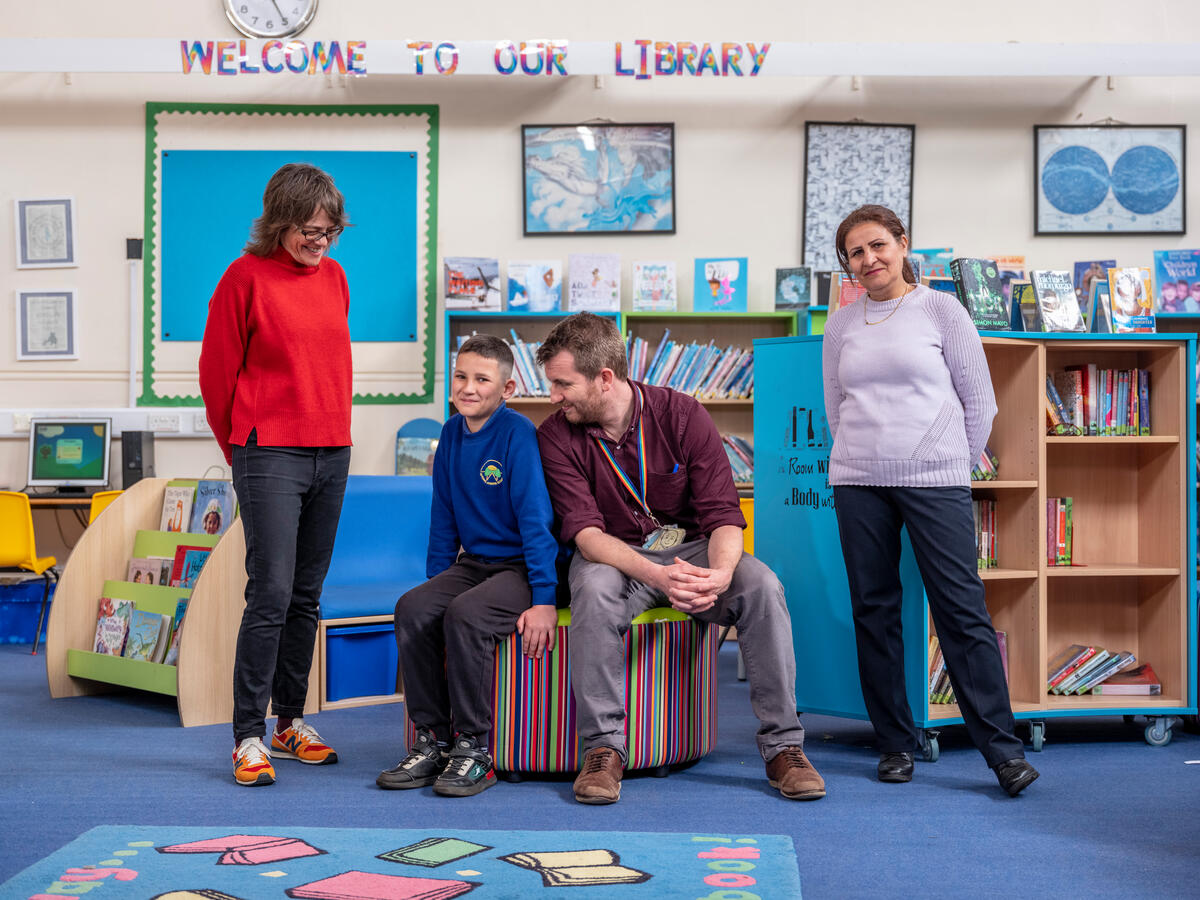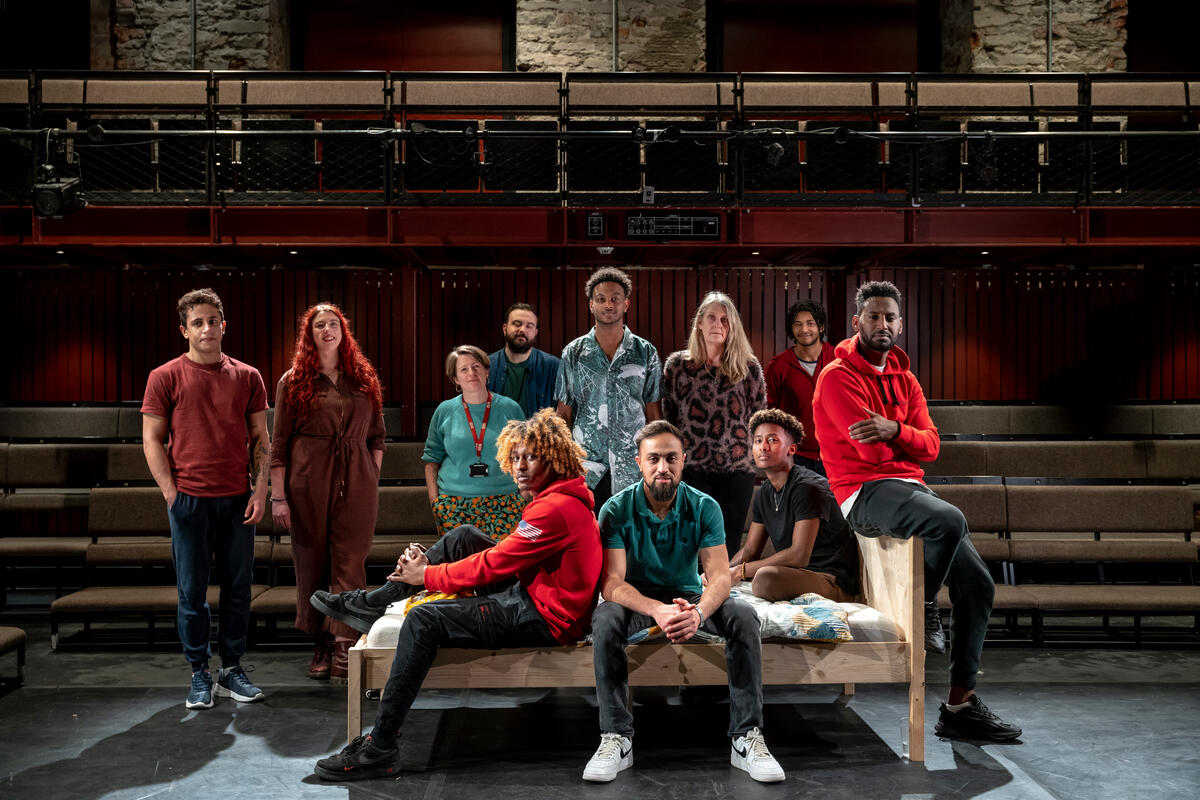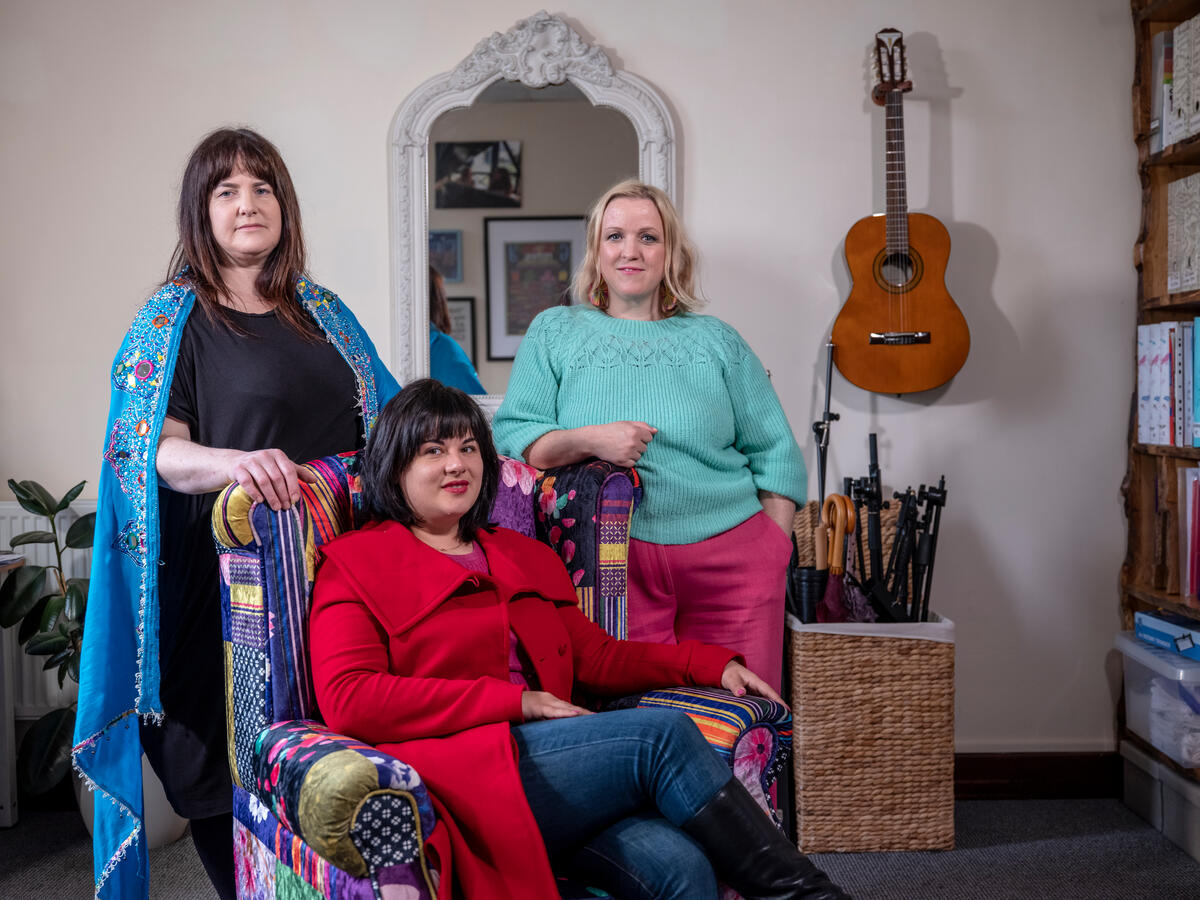Refugees rock, release and make friends at climbing centre in Liverpool
Refugees rock, release and make friends at climbing centre in Liverpool
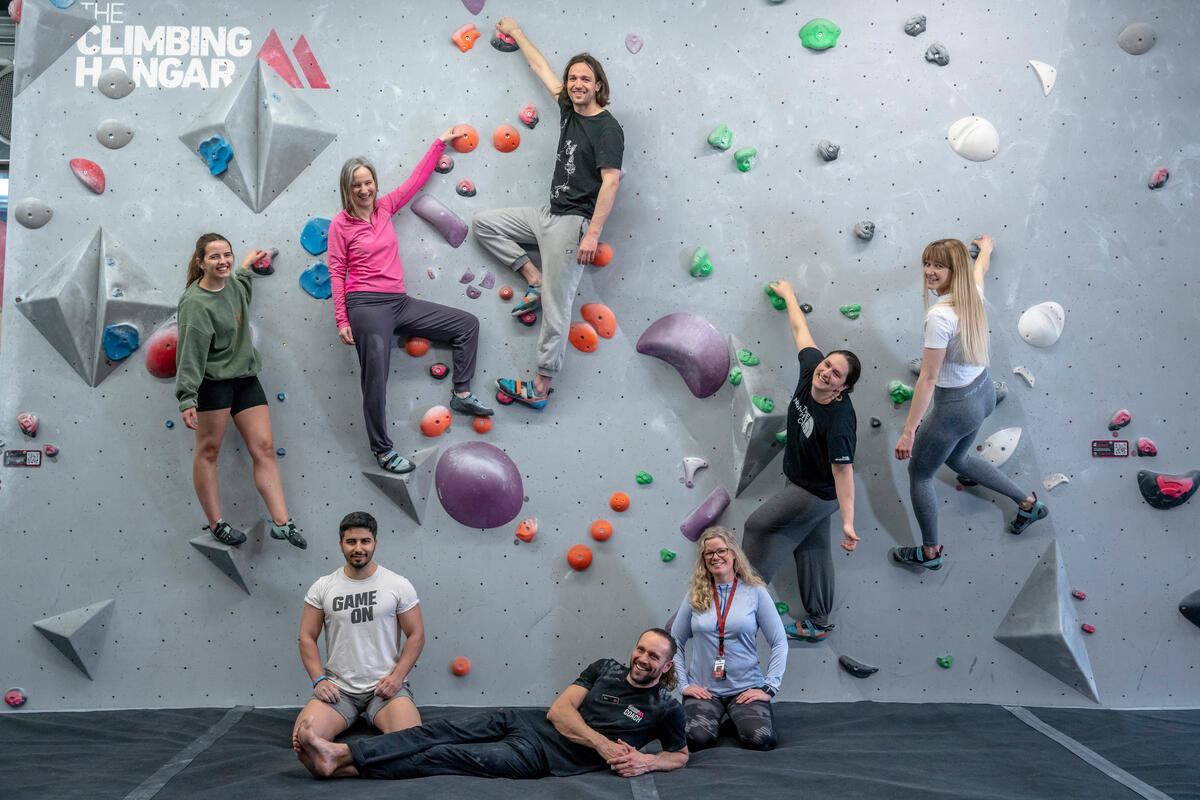
Organisers and members of Refugees Rock at the Climbing Hangar in Liverpool during a monthly session.
Olivia was among the first volunteers to sign up to the ‘Boulder Buddies’ programme back in 2021, pairing Hangar members with refugees and asylum-seekers. Olivia often climbs with Amir, an asylum-seeker from Iran, whose enthusiasm for the sport is growing along with his skill. “I love climbing, it makes me happy,” says Amir.
Bouldering is a form of rock climbing that doesn’t use ropes. The aim is to reach the top via coloured holds with routes varying by difficulty, with climbers working in groups or pairs to work out the best way up. Specialist shoes are needed to make it easier to navigate small footholds and chalk makes it easier to keep a firm grip.
In climbing lingo, the routes are called ‘problems’ because the challenge of the short, technical routes is as much mental as it is physical. Underneath each wall are crash mats, which serve to break a fall, and also provide a relaxed environment to discuss the climb or just have a chat.
Teamwork is vital. Boulder buddies such as Olivia and Amir help one another solve climbing problems, but they also learn from each other in different ways: Olivia says she has met people from different countries and learned about different cultures, all while improving her climbing; Amir says he has found an inclusive and welcoming community to belong to.
“It’s not about where you come from, or who you are. It’s not a political place, you know, at climbing you just make friends,” says Amir, who arrived in the UK in October 2022. He soon started climbing at the Refugees Rock sessions and is now a dedicated Hangar member, taking advantage of the free membership that is offered to refugees and asylum-seekers who show commitment by first attending three of the monthly sessions.
Bouldering has surged in popularity in the UK in recent years with around a million people climbing regularly, according to the Association of British Climbing Walls. The free access offered by the Hangar puts the sport within reach of refugees and asylum-seekers for whom it would often be too expensive.
Helene is a keen climber and a Project Coordinator at the British Red Cross who helped establish Refugees Rock in order to share the sport she loved with the refugee and asylum-seeking community. After suffering a period of poor health that affected her ability to walk, Helene returned to climbing and rediscovered the sport’s mental as well as physical benefits. “As I began climbing again it was so good for my mental health, and I just remember thinking this would be such a good thing for the people that we support,” she says.
Helene teamed up with a former colleague now working for Action Asylum, part of an national initiative coordinated by Asylum Link Merseyside. Through this project they support refugees and asylum-seekers, and were already holding occasional sessions at the Hangar. Together they formalised these into Refugees Rock in 2022.
None of this would have been possible without the support of the Hangar and its community of staff, climbers, and volunteers who have gone out of their way to ensure Refugees Rock succeeds. Once, when staff discovered that a bus fare fund to help refugees and asylum-seekers attend the sessions had run out, Hangar Coach Ben collected abandoned water bottles from the lost property, washed and sold them to raise money, to remove that barrier.
Helene says the project is all about sharing a passion for climbing. “People often think they have to look outside of themselves to volunteer. But if you’re really passionate about something there will be people who benefit from that,” she says. “Everyone who is a boulder buddy loves climbing, the staff love climbing, so that passion goes back into the refugee community.”
Climbing is great exercise, but it also serves to ease anxieties and psychological stresses by forcing climbers to focus intensely on the challenge in front of them. “When you’re climbing a ‘problem’, you forget about all your own problems,” Helene says. “It’s mindfulness in action.”
Olivia agrees: “When you’re on the wall, you can’t think about anything else.”
Once launched, Refugees Rock quickly took on a life of its own. “Once it’s set up, that community just thrives,” says Olivia, who is keen to emphasise the importance of activities such as bouldering which can build a sense of community and belonging for everyone involved.
“It’s hard to imagine how difficult it must be for someone who has come here, whatever their background, who doesn’t know anybody in the city, doesn’t have any connections. One of the best things about this club is the emphasis on well-being and community. It’s just something really positive to be involved in.”










